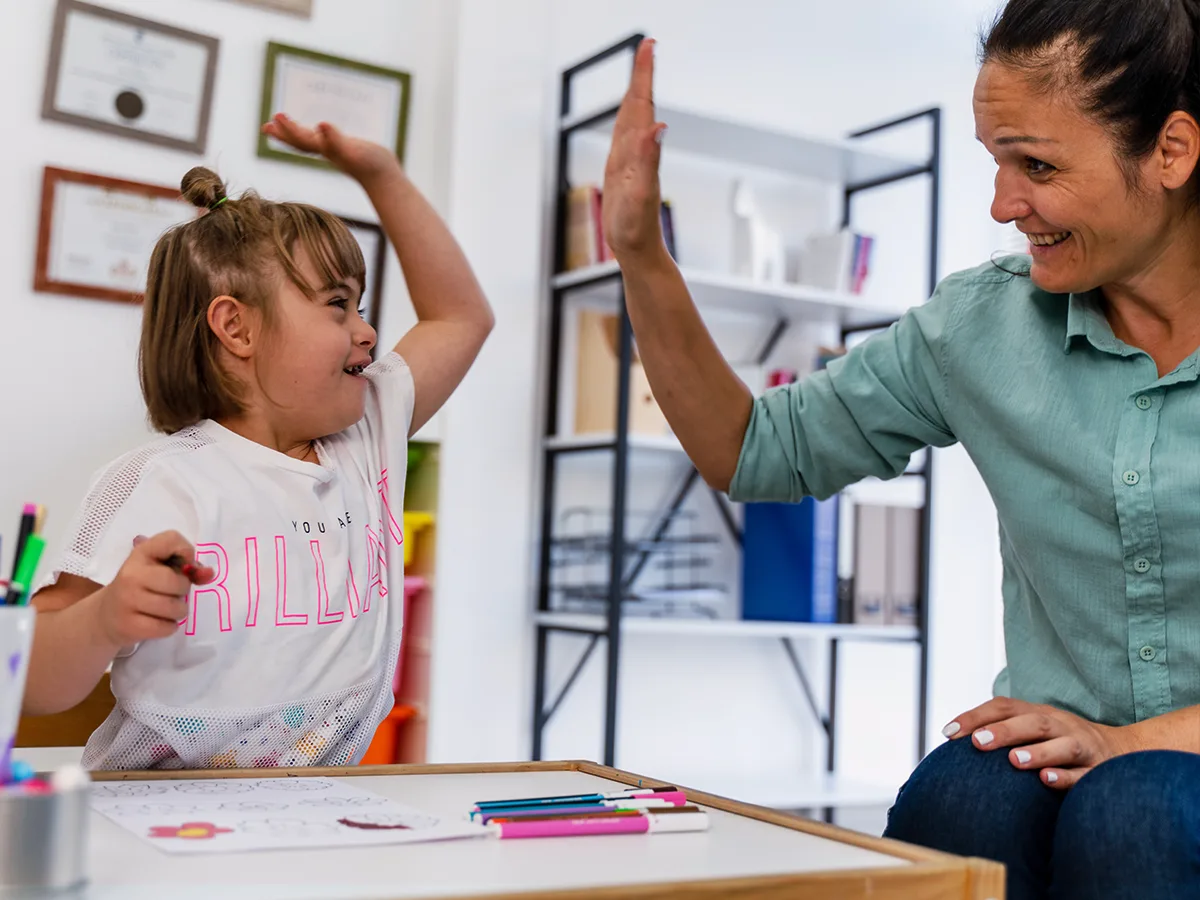The best way to praise kids who learn and think differently

At a glance
Praise can have a powerful effect on kids who learn and think differently.
The right kind of praise can boost confidence and motivation.
It’s better to praise kids’ efforts rather than their natural abilities.
Praise can have a powerful effect on kids who learn and think differently. It can empower and motivate them to keep trying hard. And it can fuel them to find strategies to overcome challenges.
But some kinds of praise are more helpful than others. In fact, research has shown that some types of praise can backfire and make kids doubt their abilities. It may seem like a good idea to say things like, “You’re incredibly smart!” or “Great job!” But there are better ways to empower kids through praise.
Types of praise
Personal praise highlights kids’ natural abilities, like intelligence or a talent for playing the piano. It’s the kind of praise we often use to express affection. For example, you might say, “You have such a beautiful singing voice.”
Personal praise tends to focus on the talents kids are born with. But be careful with this kind of praise. It can make kids feel less confident. If kids think they’re “prepackaged” with certain talents, they might not think they can keep building those skills.
Personal praise can make kids less willing to try new things. It can keep kids from developing a growth mindset — the belief that their abilities can improve over time.
Effort-based praise focuses on what kids can control, like how much time they spend on a project or their approach to something. This kind of praise is more empowering than personal praise.
Here’s an example of how they’re different. If your child gets a good grade on a science project, personal praise might be, “Wow, you’re good at science!” Effort-based praise, on the other hand, might sound like this: “I’m so impressed at how hard you worked on your science project.”
You can make effort-based praise even more powerful by getting specific. For example, “You did a nice job waiting your turn to talk while I was on the phone.” Praise like that clearly tells kids what they did well. It also reminds them of the behavior you want to see.
You can also use this kind of praise to acknowledge steps your child is taking to get better at something.
For example, say your child’s goal is to get to school on time. There are smaller steps along the way: waking up, brushing teeth, getting dressed, and having a bag packed and ready. If you praise the steps your child does well, you’re showing that the bigger goal is something they can achieve if they keep going.
How to give praise
When you praise your child’s efforts, try to:
Be specific. Take the guesswork out of what you’re praising. Instead of saying “You were so good in the store,” make a more detailed comment: “Thank you for being so patient while we waited in line.” This can help your child remember to be patient again the next time you’re waiting in line.
Be sincere. Kids know when you’re not being genuine. Insincere praise — “You’re the best basketball player in the world!” — can make kids wonder why you’re not telling the truth. It might even make them feel like you think they can’t do any better.
Be clear. Be descriptive about what you’re praising. “Your watercolor technique is really coming along nicely — did you use any new techniques in this painting?” is more helpful than “This is such a fantastic painting. Someday you’ll have your own art gallery!” This helps remove the pressure to be perfect or “the best.” It’s more realistic, and it helps kids understand what they’re working on getting better at.
Focus on progress. This helps kids see how their efforts are paying off. It can keep them motivated, too. For example: “I can really tell how much you’ve been practicing dribbling. You’re better at controlling the ball than you were at the beginning of the season.”
Talk about how their actions affect other people. For example, you can say, “Thanks for helping with the dishes. I really appreciated your lending a hand.” This also shows kids they’re a valued member of the family or the community.
Help kids express feelings. Sometimes kids need help identifying their own emotions and owning their accomplishments. For example, if you’re praising your child’s hard work in math, you can add: “You must feel so proud that all of your hard work and studying made such a big difference.”
What to watch out for
It’s important to praise kids based on how well they’re doing compared to themselves — not to other people. Praise based on outperforming a friend or teammate can make kids doubt their abilities. This is especially true if they start to face stiffer competition.
That’s why saying, “I’m so proud of you for learning how to spell such tricky words!” is more empowering than “I’m so proud of you for coming in first in the spelling bee.”
The other big thing to watch out for is inflated praise. We’ve all heard this type of praise before: “You’re so smart, beautiful, sweet, and perfect!” You might think that if kids do something well, telling them they’re doing it really well will give their self-esteem an extra boost.
But researchers have found that this kind of over-the-top adoration won’t do much to help motivate kids. It can actually make kids less likely to take on new challenges because they think they have to meet really high standards.
That’s why it’s a good idea to stick with genuine praise about kids’ efforts. Explore this chart for examples of how to boost self-esteem through praise. And remember that there are other ways besides praise to help build your child’s self-esteem.
Key takeaways
Over-the-top praise can backfire.
Sincere and specific praise helps kids know exactly what they’re doing well.
Praise your child’s progress toward a goal — not just the end result.





